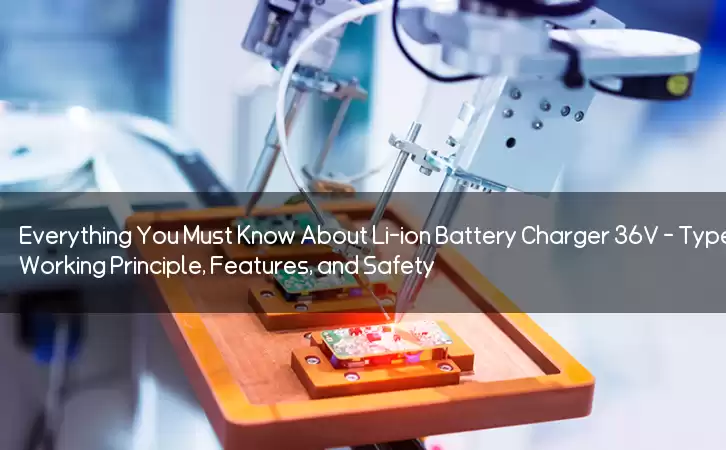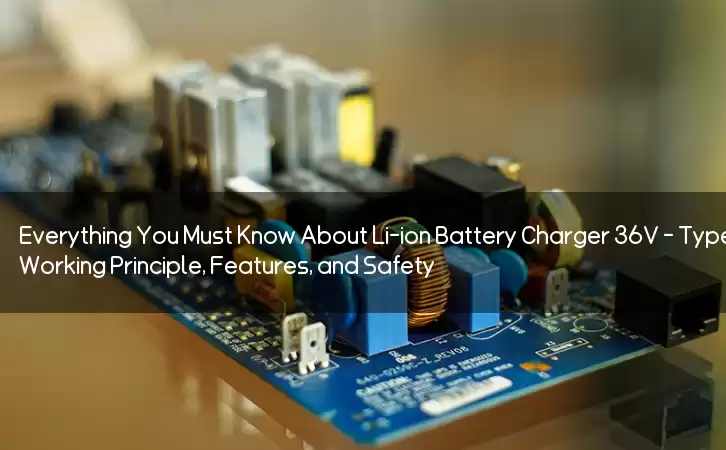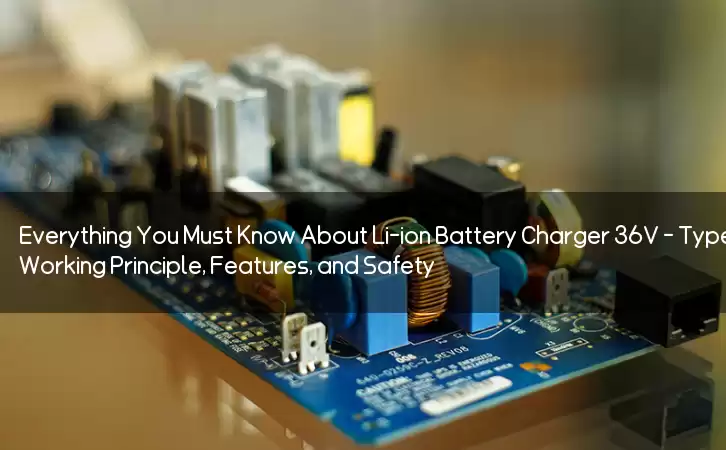Information Center
Everything You Must Know About Li-ion Battery Charger 36V - Types, Working Principle, Features, and Safety
Published:2023-06-10 10:33:07 Author:Green WCND Views:61Li-ion Battery Charger 36V: Everything You Need to Know

A Li-ion battery charger 36V is a device designed to charge a 36V lithium-ion battery. Lithium-ion batteries are widely used in electronic devices, power tools, and electric vehicles due to their high energy density, low self-discharge rate, and long cycle life. However, charging a Li-ion battery requires a specific charging method to maintain its safety and performance.

In this article, we will discuss everything you need to know about Li-ion battery charger 36V, including its basic working principle, types, features, and safety considerations.

Working Principle
The Li-ion battery charger 36V works by supplying a constant current to the battery until it reaches its maximum voltage, which is typically around 42V for a 36V battery. Then, the charger switches to a constant voltage mode, where it keeps the voltage constant while reducing the current until the battery is fully charged.
The charging process is controlled by a microprocessor that monitors the voltage, current, and temperature of the battery to ensure safe and efficient charging. The charger also features different protection functions, such as over-voltage protection, over-current protection, over-temperature protection, and short-circuit protection.
Types of Chargers
There are different types of Li-ion battery chargers 36V available on the market, each with its specific features and charging rates. The most common ones are:
1. Standalone Chargers: These are basic chargers that only charge a single battery at a time. They are simple to use and affordable but may take longer to fully charge the battery.
2. Rapid Chargers: These are high-speed chargers that can charge the battery much faster than the standalone ones. They have a higher charging current but may cause more wear and tear on the battery if used frequently.
3. Smart Chargers: These are advanced chargers that can detect the battery’s condition and adjust the charging rate accordingly. They can also diagnose any faults in the battery and extend its lifespan.
Features
The Li-ion battery charger 36V has several features that make it a reliable and safe charging device, such as:
1. LED indicators that show the charging status, whether the battery is charging, fully charged, or there is a charging error.
2. Auto shut-off function that stops the charging process when the battery is fully charged, preventing overcharging and damage to the battery.
3. Lightweight and portable design that makes it easy to carry and store the charger when not in use.
Safety Considerations
When using a Li-ion battery charger 36V, there are several safety considerations to keep in mind, such as:
1. Use only the charger that is compatible with your lithium-ion battery to prevent damage to the battery and ensure safe and efficient charging.
2. Do not overcharge or discharge the battery, as this may lead to a risk of fire or explosion.
3. Keep the charger and battery away from heat sources, direct sunlight, and moisture to maintain their performance and lifespan.
4. Store the battery and charger in a cool and dry place, away from children and pets, and follow the manufacturer’s instructions for charging and storage.
Conclusion
In conclusion, a Li-ion battery charger 36V is an essential device for charging lithium-ion batteries used in various applications, including electric vehicles, power tools, and consumer electronics. Choosing the right charger based on your battery’s needs and features is crucial for maintaining its safety, performance, and lifespan. By following the safety considerations and the manufacturer’s guidelines, you can ensure safe and efficient charging of your Li-ion battery.
Power Adapter Design and Customization Guide for Portable Electric KettlesI. Common Design Types for Portable Electric Kettle Power AdaptersPortable electric ke···
I. Common Design Types of Power Adapters External Independent Type (Most Common) Design: A standalone adapter (e.g., "black brick") connected to the p···
Handheld Vacuum Cleaner Power Adapter Selection GuideIntroductionHandheld vacuum cleaners have become a mainstream tool for household cleaning due to their port···
Drill Power Adapter Selection Guide.drill-container { font-family: Arial, sans-serif; line-height: 1.6; max-width: 800px; margin: 0 auto; padding: 20px; } .dril···





